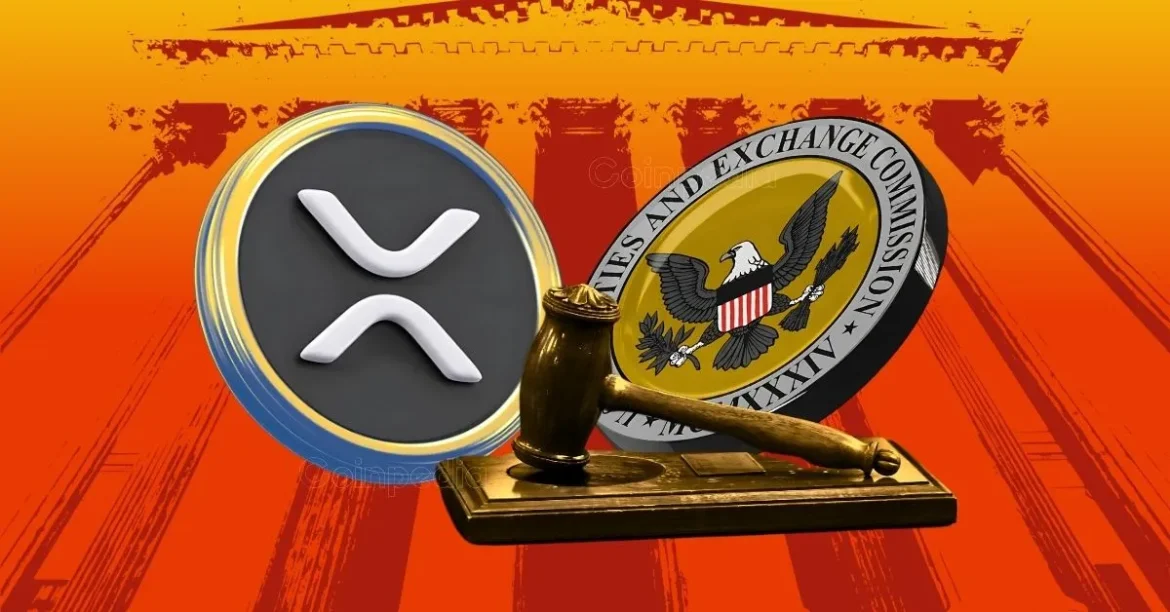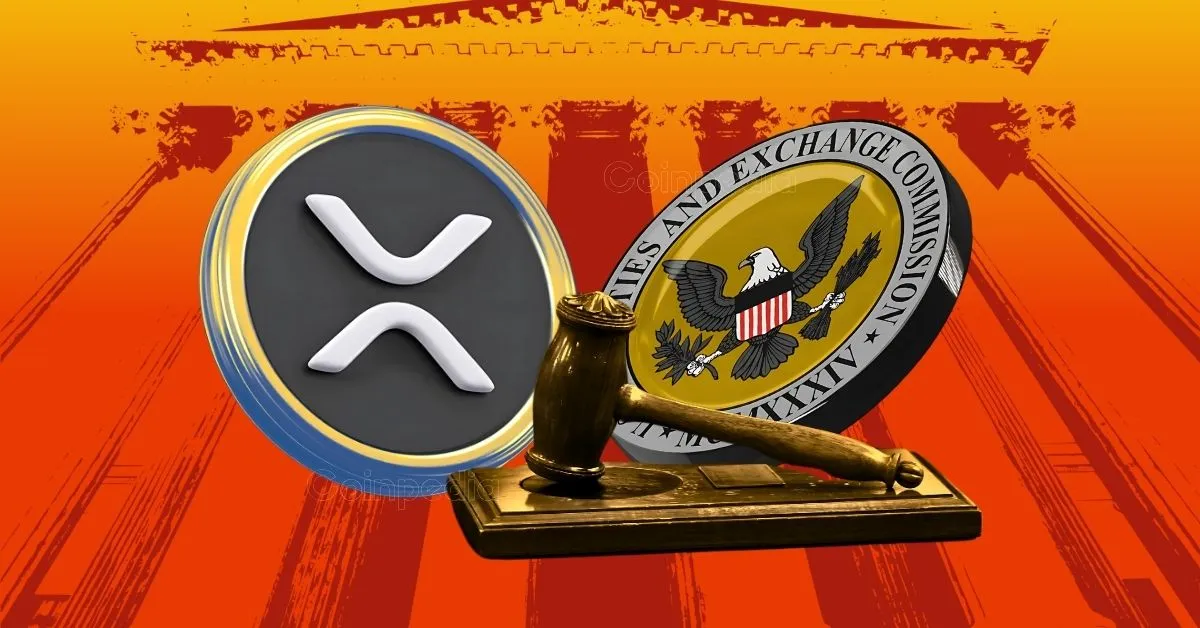Unpacking the VanEck Controversy in the Ripple vs. SEC Lawsuit
The ongoing legal saga between Ripple Labs and the U.S. Securities and Exchange Commission (SEC) continues to spark fierce debates across the cryptocurrency ecosystem and regulatory circles. An intriguing controversy has recently emerged around VanEck, a well-known asset management firm, drawing sharp criticism from pro-XRP legal advocates for what they perceive as inconsistent and selective stances on regulatory favoritism. This report delves into the layers of this dispute, examining the motivations, implications, and broader significance in the context of crypto regulation and market fairness.
—
Context: The Ripple vs. SEC Lawsuit and VanEck’s Role
The SEC filed a lawsuit against Ripple in 2020, alleging that XRP sales constituted unregistered securities offerings. Central to the case is the question of whether XRP should be classified as a security—a designation with sweeping legal and regulatory consequences. Ripple has achieved notable judicial victories, including a ruling that XRP sales on secondary markets do not constitute securities sales. Despite these wins, the battle is far from resolved, with ongoing appeals and continued legal maneuvering.
VanEck, meanwhile, is a prominent player in the ETF and digital asset space and has increasingly advocated for “fair and consistent” regulatory treatment concerning crypto products, particularly in relation to ETF approvals. However, their recent vocal opposition to perceived SEC favoritism in the ETF approval process contrasts sharply with their silence during Ripple’s intense legal struggles.
—
The Core Accusation: VanEck’s Selective Outrage
Bill Morgan, an attorney representing XRP holders and a vocal proponent of Ripple, publicly criticized VanEck for what he frames as a “playing both sides” approach. Through posts on social media (notably the platform X, formerly Twitter), Morgan highlighted that VanEck and other asset managers did not challenge or even comment on the SEC’s classification of XRP as a security during Ripple’s lawsuit. This period saw XRP subjected to legal actions, while Ethereum, another major cryptocurrency, was publicly designated a non-security by SEC official William Hinman and escaped enforcement action.
Morgan’s pointed assertion is that VanEck’s recent pushback against SEC favoritism—particularly regarding Ethereum’s preferential treatment and ETF approvals—is inconsistent given their previous silence when XRP faced regulatory adversity. This hypocrisy, he suggests, undermines their credibility and suggests a strategic alignment only when it serves their interests.
—
Examining the Discrepancy: Reasons Behind VanEck’s Silence
Understanding why VanEck stayed quiet during the Ripple lawsuit while speaking out now requires unpacking several possible strategic dimensions:
– Regulatory Strategy: VanEck might have prioritized building goodwill with regulators to secure ETF approvals and other market advantages rather than publicly confronting the SEC during high-profile lawsuits.
– Commercial Interests: VanEck’s product pipeline and market positioning could explain their focus. Ethereum-related ETFs and products might be more central to VanEck’s current business model, prompting advocacy now that wasn’t aligned with their interests during Ripple’s legal troubles.
– Risk Management: Publicly opposing the SEC’s stance during an ongoing lawsuit could have exposed VanEck to regulatory backlash or jeopardized negotiations. A calculated silence until market conditions changed might have been seen as more prudent.
Each of these potential reasons underscores the complexity of navigating regulatory waters in a rapidly evolving crypto environment where market participants often balance compliance, strategic advocacy, and commercial goals.
—
Implications for Crypto Regulation and Market Perception
The VanEck controversy highlights critical tensions within the crypto industry around fairness, regulatory consistency, and industry advocacy:
– Perceived Regulatory Favoritism: Ripple’s case exposed seeming inconsistencies in SEC enforcement—Ethereum, despite concerns, was granted a form of regulatory grace, while XRP faced aggressive legal action. This differential treatment fuels industry demands for transparent, coherent rules.
– Industry Advocacy Challenges: The episode underscores how conflicting interests within the crypto ecosystem can fragment unified calls for regulatory clarity and fairness. Asset managers and market participants may pick their battles based on strategic calculations rather than consistent principles.
– Investor Confidence and Market Stability: When prominent firms appear to selectively challenge regulators or “play both sides,” it can muddy the narrative for investors, complicate risk assessments, and possibly impact market dynamics for digital assets.
—
Looking Forward: What This Means for Ripple, VanEck, and the Broader Market
The Ripple vs. SEC lawsuit remains unresolved, with ongoing litigation and appeals expected into 2025 and beyond. Meanwhile, VanEck’s evolving stance signals that regulatory engagement and opposition will likely intensify, especially as crypto ETFs become mainstream investment products.
For Ripple supporters, the criticism of VanEck’s silence serves as a rallying point to demand greater consistency and accountability from industry leaders and regulators alike. For VanEck and similar firms, the challenge will be balancing strategic interests with industry-wide calls for transparent and equitable regulation.
Beyond these immediate players, the controversy serves as a broader lesson on the complexities of crypto regulation—a space marked by rapid innovation, evolving legal frameworks, and competing interests keen to shape the future landscape.
—
Conclusion: The Price of Selective Advocacy
VanEck’s silence during Ripple’s legal turmoil, contrasted with their later outspoken criticism of SEC favoritism, vividly illustrates the complexities and contradictions in industry-regulator relations within the crypto ecosystem. This episode reveals how strategic interests often shape when and how stakeholders engage in regulatory debates—sometimes at the expense of perceived consistency and fairness.
As the crypto market matures, enduring trust and clarity will depend not just on regulatory outcomes but on the willingness of market participants to advocate transparently and consistently. Ripple’s battle and the reactions it provokes remain a critical test case for the future integrity and cohesion of the crypto regulatory environment.





